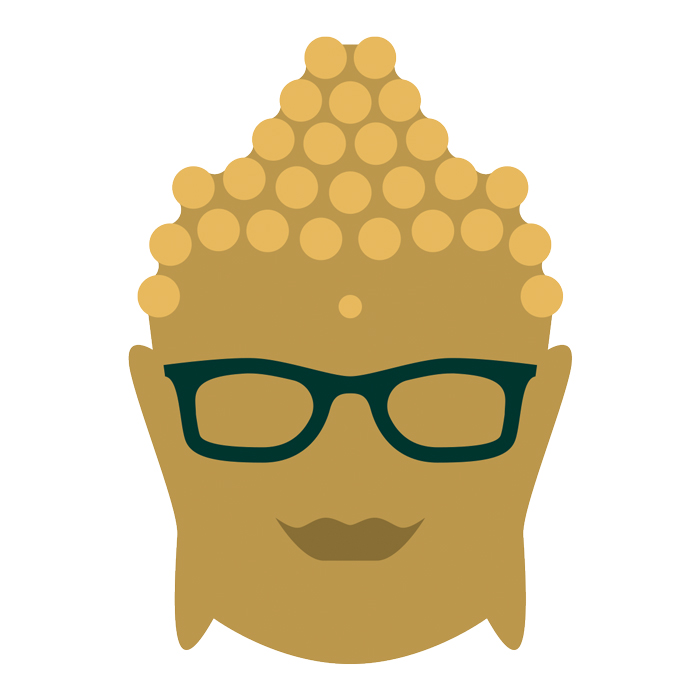This year-end review skims the surface of 2023’s academic works on Buddhism, bridging the often intimidating divide between scholarly discourse and everyday practice. These articles and books taught us new perspectives, challenging and enriching our understanding of our Buddhist tradition. We believe engaging with academic studies can significantly deepen the insights that practice reveals, offering nuanced views beyond conventional teachings. While some of these may require a bit of perseverance and careful reading to complete, each one broadened our understanding of Buddhist history and culture. We encourage you to explore these well-researched works from the academy, allowing them to enlighten the way on your Buddhist path.
We find intellectual and practical value in each of these publications, but to aid this year-end review, we’ve assigned a four-wheel dharma rank (☸️☸️☸️☸️): those with the highest ranking are the most accessible and applicable to practice.
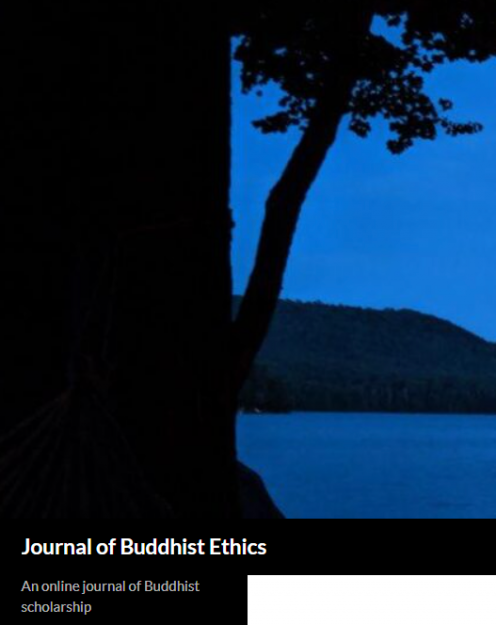
“Beyond Queen and King: Democratizing ‘Engaged Buddhism’” by Donna Lynn Brown. In Journal of Buddhist Ethics vol 30, February 2023. Open access article.
The term “engaged Buddhism” has become ubiquitous in common understanding (particularly in the West) and academic discourse. However, its usage is often unclear and sometimes problematic. Labeling certain traditions as “engaged” by necessity implies others are not, and those others are usually traditional Buddhist beliefs and practices that compose the vast majority. Certain forms of social engagement count in this delineation process, and others do not.
For years, a minority of scholars have criticized this categorization to no avail—until recently. Scholar Donna Lynn Brown provides a solid history of the term in academics, drawing out some of the biggest names in studying Buddhist modernism who have created a consensus in meaning. She also examines the dissenters and the backlash they have received. Moving the discussion beyond both sides, she recommends new approaches for exploration.
While this article is important for Western practitioners and academics alike, the discussion this paper initiated in formal publications and online chatter is more interesting. As the main targets of Brown’s paper, Christopher S. Queen and Sallie B. King both responded and claimed misrepresentation of their work, and several heavy hitters in Buddhist studies weighed in through a rabbit hole of comments and tweets. This very public exchange provides an accessible glance into the dynamics of academic discourse and the dialectic at work in producing scholarship and meaning, a back-and-forth often gleaned only from conferences and public appearances. Maybe you have two coins to throw into this fountain of knowledge.
Rating: ☸️☸️

“Gender Conflicts in Contemporary Korean Buddhism” by Eun-su Cho. In Religions vol 14, February 2023. Open access article.
Are fully ordained Korean nuns (bhikshuni) as empowered as we think they are? Though Korean nuns have long had a higher social standing than other nuns in Asian countries, Eun-su Cho finds that this “equal status is challenged once the nuns step outside their own communities and into the hierarchical system of the (Jogye) Order.”
Cho’s paper traces the historical development of the Korean bhikshuni order, the effect of South Korea’s economic growth on the Buddhist community, and how, despite the increased opportunities for nuns to study and hold (a single) administrative position in the predominant Jogye Order, conservative and misogynistic values limit bhikshunis. Cho concludes by calling for the promotion of “gender awareness” and the establishment of “fair policies across religious, institutional, and social aspects” as a way to create a genuinely inclusive sangha.
Rating: ☸️☸️☸️
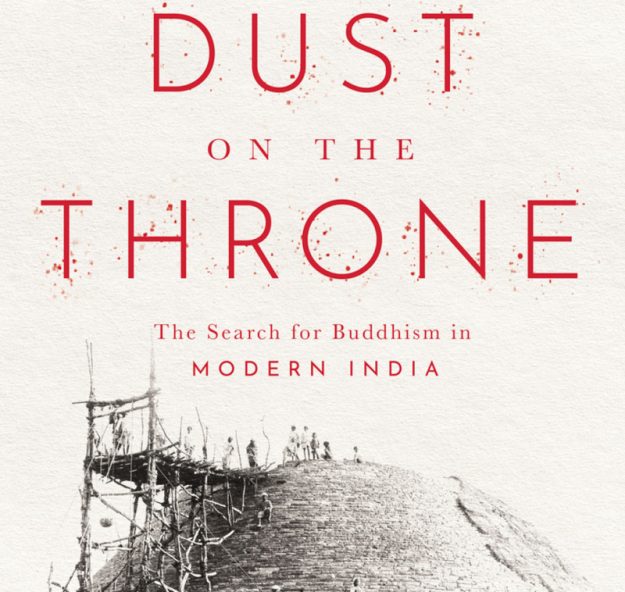
Dust on the Throne: The Search for Buddhism in Modern India by Douglas Ober. Stanford University Press, March 2023, 394 pp., $32.00, paper.
Scholar Douglas Ober offers a fresh take on Buddhism’s trajectory in colonial and postcolonial India, challenging widely held views of its 13th-century decline and Western rediscovery. Ober digs deep into overlooked histories, revealing indigenous contributors instrumental in Buddhism’s resurgence as a modernizing force. He deftly shows how Indian scholars, educated under colonial influences, shaped Buddhism as an intellectual, anti-Brahmanical movement. This dense exploration of India’s history weaves together the interconnectedness of monks, scholars, international networks, and nationalistic drives in Buddhism’s reawakening. A crucial read, it sheds light on the sociopolitical forces shaping Buddhism’s revival and gives insight into the roots of Buddhist modernism.
Rating: ☸️☸️
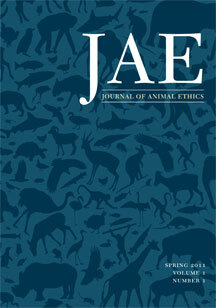
“Ethical Veganism as Moral Phenomenology: Engaging Buddhism with Animal Ethics” by Colin H. Simonds. In Journal of Animal Ethics, Vol 13 No 1, March 2023.
With animal rights and liberation increasingly in the spotlight, Canadian scholar Colin Simonds dives into how we see and value our nonhuman animal friends. Simonds argues for a moral phenomenological approach to “ethical veganism,” differentiating it from “dietary veganism.” This move demands a perceptual shift where people recognize nonhuman animals’ sentience and moral worth as the primary concern. To cultivate this new awareness, Simonds advocates implementing a framework grounded in Tibetan Buddhist understandings of view, meditation, and action: intellectually understanding the view of animals’ sentience and moral worth, internalizing this view through meditation, and then acting in alignment with this integrated perception. Presenting historical and contemporary Tibetan Buddhist examples of direct encounters with nonhuman animal suffering that led to ethical reorientations, Simonds suggests that this reframing can guide future scholarship and activism strategies, fostering broader adoption of ethical veganism. You’ll have to use a school or local library (yes, they still exist) to access this article on Project Muse or subscribe to the Journal of Animal Ethics.
Rating: ☸️☸️☸️
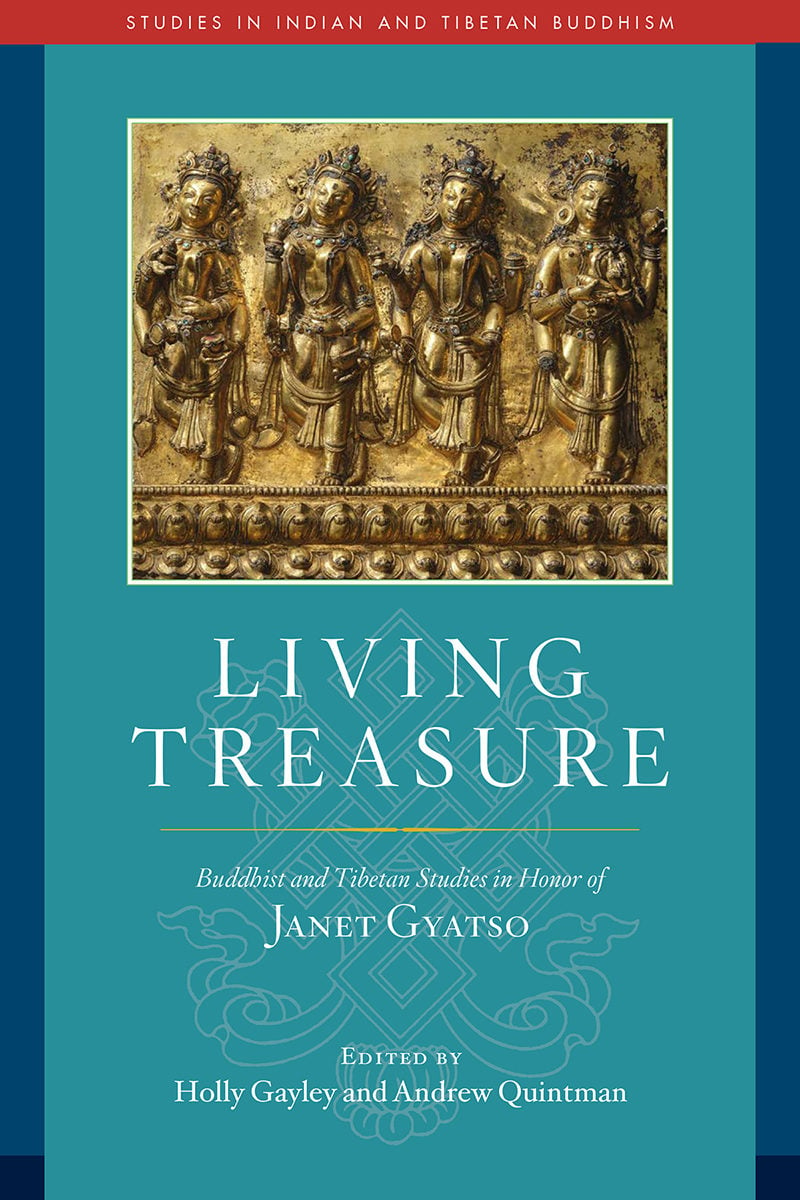
Living Treasure: Buddhist and Tibetan Studies in Honor of Janet Gyatso edited by Holly Gayley and Andrew Quintman. Wisdom Publications, June 2023, 544 pp., $59.95, hardcover.
Janet Gyatso, the Hershey Professor of Buddhist Studies at Harvard University, has been “one of the most creative and influential thinkers of her generation,” as the editors write, and has made rich and prolific contributions to the field since the eighties. This anthology celebrates two areas of her greatest expertise, terma (hidden) texts and Tibetan autobiographical writing, and features essays from many former students turned colleagues. Gyatso’s multidisciplinary approach and “interrogation of what it means to be human” is found in these pieces on supine demonesses, a third gender, and Tibetan nuns’ advocacy for full ordination. What results is a scholarly work that will be enjoyed by anyone with even a remote interest in Indian and Tibetan Buddhism, and need not be limited to an academic audience.
Rating: ☸️☸️☸️☸️

New Perspectives in Modern Korean Buddhism: Institution, Gender, and Secular Society edited by Hwansoo Ilmee Kim and Jin Y. Park. SUNY Press, June 2023, 348 pp., $36.95, paper.
Westerners might be familiar with Master Seung Sahn’s Kwan Um School of Zen, but the importance and influence of Korean Buddhism, particularly its attempts to harmonize doctrinal inconsistencies, remain mostly unknown outside East Asia. This edited volume sheds more light on one of the world’s oldest surviving Mahayana traditions. Mark Nathan lands some historiographical punches on previous scholarship. Hwansoo Kim’s late Joseon Dynasty Court Lady Chon account brings laywomen to the fore. And Su Jung Kim leads monks’ secret wives out of the closet. Despite not offering new perspectives outside the dominant Jogye Order, this monograph is a must-read for contemporary Korean Buddhist studies.
Rating: ☸️☸️
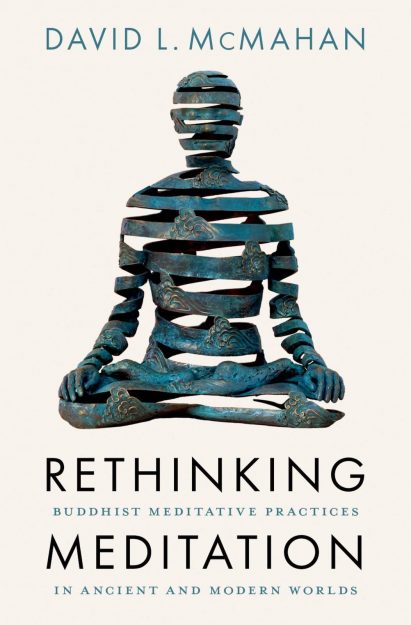
Rethinking Meditation: Buddhist Meditative Practices in Ancient and Modern Worlds by David L. McMahan. Oxford University Press, July 2023, 264 pp., $29.95, hardcover.
Known for his widely cited The Making of Buddhist Modernism, David McMahan’s recent contribution to Buddhist studies will surely spark reactions. Dissecting the evolution of Buddhist meditation across cultures and eras, McMahan delves into how meditation practices are reinvented with contemporary values, debunking the myth of a singular, timeless Buddhist practice. He examines how modern meditators, influenced by their cultural biases, focus on aspects like interdependence and health, while earlier practitioners emphasized different views and goals. Tackling a wide range of buzzwords and topics, McMahan’s intentionally accessible prose invites readers to a slow, thoughtful read through complex ideas and poignant contemplations. Destined to ruffle a few feathers in the meditation business, anyone interested in seeing clearly and letting go of the raft they rode to the other shore should read this book.
Read the Tricycle review. Read an adaption by the author.
Rating: ☸️☸️☸️☸️

“‘Meditation Sickness’ in Medieval Chinese Buddhism and the Contemporary West” by C. Pierce Salguero. In Journal of Buddhist Ethics vol 30, August 2023. Open access article.
With the explosion of mindfulness and meditation as a cure-all, there have been increasing reports of adverse effects of meditation on message boards, Buddhist and mainstream publications, and other outlets. In this paper, C. Pierce Salguero, author of A Global History of Buddhism and Medicine and a professor of Asian history and religious studies at Pennsylvania State University’s Abington College, examines four medieval Chinese Buddhist texts and their “antidotes” to meditation sickness.
Salguero writes that “details in these contemporary accounts of meditators in distress” had an “uncanny similarity to descriptions in the medieval Chinese materials,” and part of his motivation for the analysis was to consult non-Western, non–English speaking sources to counteract the “current practice of almost exclusively centering Western voices.” Many antidotes, Salguero notes, include visualization meditation techniques and, to a lesser extent, “confession and repentance rituals like cleaning the monastic toilets and other menial tasks as part of the remedy.” Salguero’s most important takeaway for modern practitioners is the question as to why modern (Western) meditation teachers aren’t more knowledgeable about classical sources, and that these historical techniques ought to be better understood by practitioners, teachers, and mental health professionals alike.
Read “Buddhism’s Biggest Open Secret,” the winter 2021 feature that Salguero references in his academic paper. It includes a mental health check-in list for practitioners considering a retreat.
Rating: ☸️☸️☸️
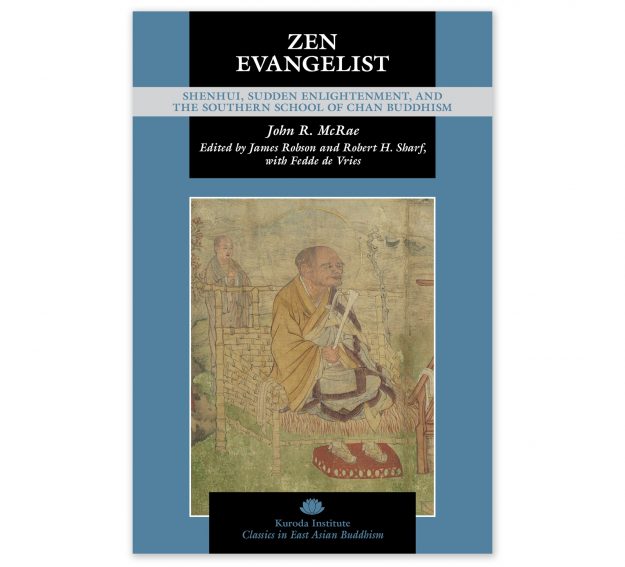
Zen Evangelist: Shenhui, Sudden Enlightenment, and the Southern School of Chan Buddhism by John R. McRae, edited by James Robson and Robert H. Sharf, with Fedde de Vries, Kuroda Institute (University of Hawaii Press), August 2023, 360 pp., $68.00, hardcover.
Zen Evangelist sheds light on Shenhui (684–758), an important but somewhat overlooked figure in Chan Buddhist history. Known for his boisterous personality and penetrative teachings, Shenhui was a vociferous advocate for the sudden enlightenment-gradual cultivation view of awakening and practice. His advocation of this created controversy in his day and significantly influenced Chan Buddhism’s trajectory and much of East Asian Buddhist views on meditation.
Scholar John R. McRae’s posthumous work provides an English translation of Shenhui’s surviving teachings for the first time and offers valuable insights into his enduring impact. Those familiar with Chan’s history will find McRae’s challenge of established narratives useful and eye-opening, and practitioners will find resonance in Shenui’s relentless rebuke of dualistic thinking. A memorialization of both McRae and Shenhui, this publication will surely capture both the hearts and minds of its readers and reshape our understanding of Chan.
Rating: ☸️☸️☸️
Buddhist Masculinities edited by Megan Bryson and Kevin Buckelew. Columbia University Press, September 2023, 352 pp., $35.00, paper.
Buddhist dharma and literature are full of idealized sacred and mundane physical perfections; often, those aesthetic ideals refer to men. Examining a wide range of overlooked and unexplored Buddhist maleness—from narratives of morally superior monks and demon-taming tantric heroes to depictions of irresistible buddhas and bodhisattvas endowed with sensuous bodies and jeweled smiles—Buddhist Masculinities expands on contemporary gender and intersectionality studies, merging a variety of methodological approaches. This much-needed transdisciplinary book pays critical attention to how ideas of masculinity have embodied, defined, and legitimized power and virtue in diverse Buddhist contexts.
Rating: ☸️☸️
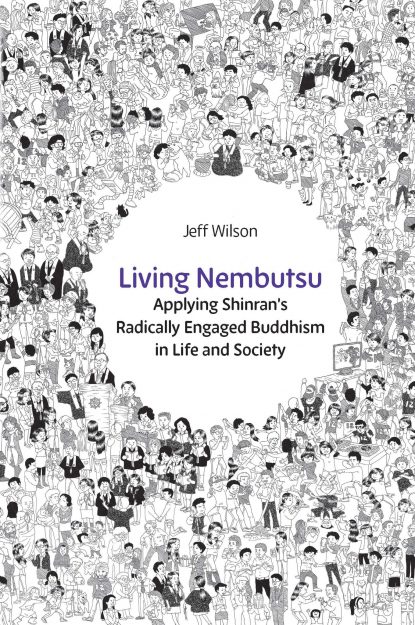
Living Nembutsu: Applying Shinran’s Radically Engaged Buddhism in Life and Society by Jeff Wilson. Sumeru Books, March 2023, 158 pp., $24.95, paper.
Living Nembutsu: Applying Shinran’s Radically Engaged Buddhism in Life and Society by religious scholar Jeff Wilson explores the teachings of Shinran Shonin (1173–1263), the founder of Jodo Shinshu Buddhism, and how his teachings can resonate and inspire us nearly a millennium later. Wilson highlights Shinran’s radical approach to Buddhism in medieval Japan, where he rejected mainstream practices to create an inclusive Buddhism accessible to everyone, irrespective of social standing.
Wilson emphasizes Shinran’s role as a political prisoner, exile, and refugee and explores how Jodo Shinshu communities, inspired by Shinran’s teachings, can address LGBTQ+ inclusion, refugee crises, and climate change.
Read an interview with Wilson.
Rating: ☸️☸️☸️
Thank you for subscribing to Tricycle! As a nonprofit, we depend on readers like you to keep Buddhist teachings and practices widely available.
